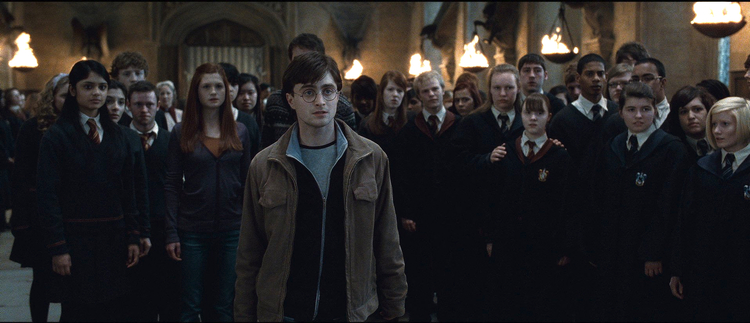
Harry Potter Finale–"Nobody Knows Anything"
By Steve Sailer
07/22/2011
Back in 1982, screenwriter William Goldman famously said “Nobody knows anything” about how well movies will perform at the box office. But, a whole lot of smart, hard-working people have worked hard on this question, and the variability has been reduced over time via a number of means. More movies are sequels or remakes. More movies are planned from the beginning to be sequel-amenable. Talent gets locked in for potential sequels at the initial contract stage, with options with escalating payments.
Movie budgets are secret and the numbers that get into the press are driven by various agendas (e.g., make it sound superstupendous before it comes out, make it sound less ruinous after it flops, etc.) But, you can kind of see money spent on the screen, especially on standardized products like sequels.
All this makes being a suit a slightly more scientific job. The big question becomes: Can you keep milking a particular franchise by constantly upping the budget faster than audience boredom sets in, or do you cash in now and burn your last audience by skimping on budget and time. For example, Jurassic Park III ($93 million budget) was a clear cash-in move: Spielberg handed direction off to somebody else and the film felt like it ended before the super-colossal pterodactyl attack that would have put it over the top. (The low budget parts of JPIII are actually quite good, with William H. Macy and Tea Leoni doing a screwball comedy of remarriage.) Not surprisingly, in the decade since, there hasn’t been a Jurassic Park IV.
On the other hand, with Pirates of the Caribbean, they keep spending gigantic amounts hoping to keep the franchise alive.
We can look at the Harry Potter budgets reported on The-Numbers as an unreliable but at least apples-to-apples comparison to see why the final Harry Potter movie seemed so skimpy.
#1 Harry Potter and the Sorcerer’s/Philosopher’s Stone, 11/2001: $125,000,000 budget — Off to a good start
#2 Chamber of Secrets, 11/2002 12 months since the previous release: $100,000,000 — Only a year and a $100 mil is skimpy for this kind of sure thing; director Chris Columbus retired from the series after the ordeal of getting out two movies in 12 months.
#3 6/2004, Prisoner of Azkaban, 19 months: $130,000,000 — Everybody goes on and on about what a great job the director Cuaron did, but more money and more time didn’t hurt.
#4 Goblet of Fire, 11/2005, 17 months: $150,000,000
#5 Order of the Phoenix, 7/2007, 20 months: $150,000,000
#6 Half-Blood Prince, 7/2009, 24 months: $250,000,000 — That’s a lot of money, fifth most all time according to this list among movies already released; and it’s a reasonable amount of time. Guess what, it was highly enjoyable. This revitalized the series and set it up to cash in hugely on the last book.
#7a, Deathly Hallows — Part 1, 11/2010, 16 months, some fraction of $250,000,000 — The producers decided to spend $250,000,000 on making J.K. Rowling’s 7th novel as one long production, but then they decided to release it as two separate movies totaling 276 minutes (compared to #6’s 153 minutes). Despite lacking in dramatic action, this one clocked in at 146 minutes. It looked great. They clearly spent a lot per minute, although not quite as much as the previous movie. I think the decision to split #7 into two movies was fine. There were no more skippable subplots and children can’t be expected to sit through a 4 hour plus movie. What’s not fine is that the producers thought they could make two movies for the same cost and in the same duration as their sixth installment.
#7b Deathly Hallows — Part 2, 7/2011, 8 months, the remainder of the $250,000,000, perhaps not even $100,000,000 if expenditure was proportional to time between releases — This one is the shortest of all eight movies at 130 minutes, and the long-awaited climactic scene looks weak. Charitably, you can say that the filmmakers ran out time and money to make the finale as good as it should have been. Uncharitably, you can say that this is where they finally cashed in big time.
